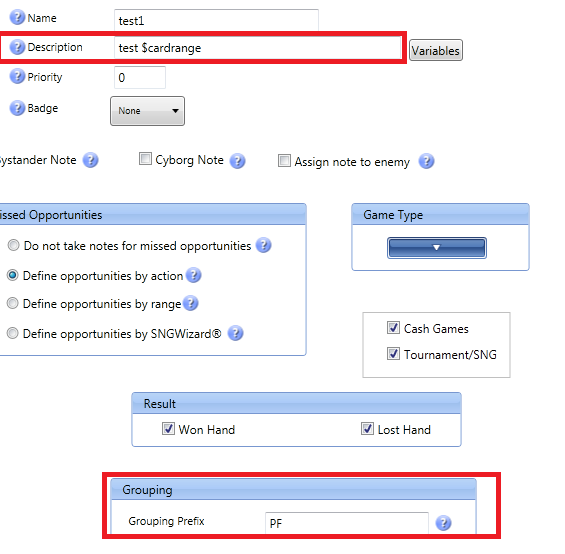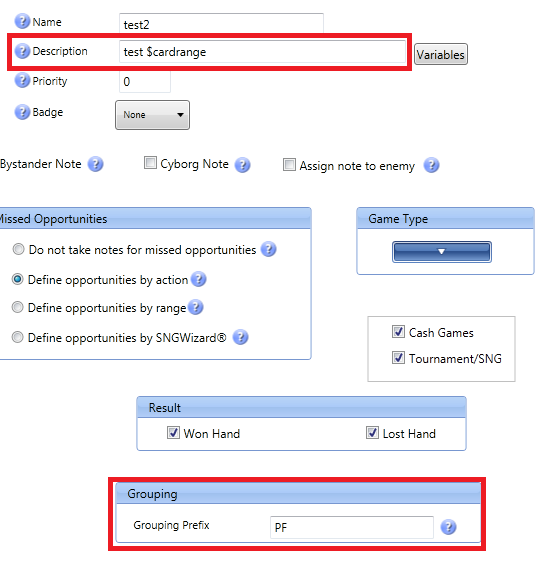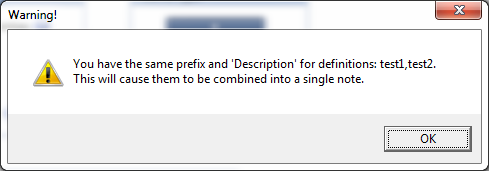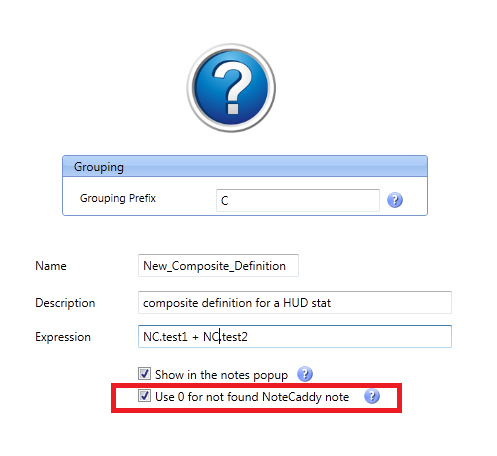A merged definition is two or more note definitions that have the same Description and Grouping Prefix. In merged definitions, the results will be merged into a single note. This concept allows you to write very complex definitions that cover a variety of scenarios that cannot be covered in a single definition.
Creating a merged definition
For example, if you want a note where someone bets the flop OR the turn, you would make two definitions and give them the same Description and Grouping Prefix, thereby creating a merged definition


Despite having different names, the result of these two definitions will be merged into a single note. If test1 produces a value of 5/10 (5 successes out of 10 opportunities) and test2 produces 2/10 then the resulting note would read 7/20 with the $cardrange
variable showing the combined results of $cardrange for both definitions

You will know that the definitions will merge when you save since you will see the above warning
Using merged definitions as HUD stats
Since there is no guarantee which merged definition the notes will go to for an individual player, using one as a hud stat presents an extra challenge. It is therefore required to create a
Composite Definition that will combine the two.

There will not exist a player for whom both test1 and test2 both contain a value. Therefore this will always evaluate to x + 0 or 0 + x where x is the value we are interested in. By checking "Use 0 for not found NoteCaddy note" we are making the irrelevant value a 0 rather than a not found which would invalidate this definition.
Using the advanced tab in merged definitions
As mentioned in the previous section,
there is no guarantee which merged definition the notes will go to for an individual player. To elaborate, in NoteCaddy, each note maps back to a single definition for the purpose of aggregate statistics and player pool analysis. If you have 2 note definitions working as a merged definition, all the notes will be mapped back to whichever definition got the first success. This does present some limitations in using the advanced tab due to the fact that filters there are evaluated when notes are displayed rather than when they are created.
- If you wish to use any item in the "sample filters" section, you need to set the same values across each definition.
- Items in the deviations from average and deviations from stats/notes section cannot be used reliably due to the fact that the player pool data isn't reliable in aggregate definitions. This is because each individual definition continues to hold the aggregates whereas only one definition will map to the actual notes.